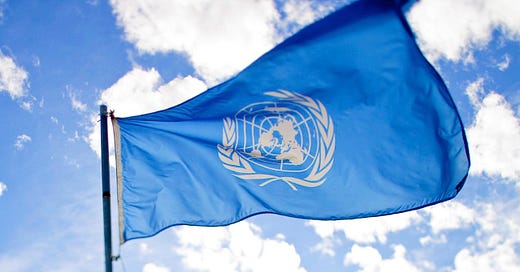An incomplete patchwork with no funding: Australia still in breach of OPCAT obligations
No jurisdiction is fully compliant with their OPCAT obligations, despite Australia ratifying the anti-torture agreement more than seven years ago.
In February 2024, attorneys-general from each state and territory met in Melbourne.
The communique stated that they agreed that each jurisdiction would “continue to cooperatively and progressively work towards compliance with OPCAT”.
At the time, Australia had already been in breach of its obligations under the Optional Protocol to the Convention Against Torture (OCPAT) for several years, with a funding impasse between the Commonwealth and state governments hampering any real progress.
Under OPCAT, ratifying nations must establish independent proactive prison inspectors, known as National Preventive Mechanisms (NPMs), and facilitate visits by a UN anti-torture group.
With Australia’s federated system, each state and territory government must appoint its own NPM. The three largest states - New South Wales, Victoria and Queensland - are still yet to do so, and have said they will not until they are provided ongoing federal government funding.
There has been little progress at all since the attorneys-general meeting in early 2024, and OPCAT has not been mentioned in another communique based on a meeting of the group since then.
In its annual OPCAT report, the Commonwealth Ombudsman, which is the Commonwealth appointed NPM, said that “overarching challenges persist” in the implementation of the international human rights obligations.
“Membership of the Australian NPM is still incomplete, legislative powers and protections for both NPMs and visits from the United Nations Subcommittee on Prevention of Torture are a patchwork, and no members have been adequately resourced to enable us to meet the full OPCAT mandate for all places of deprivation of liberty,” the Commonwealth Ombudsman report said.
“Until implementation gaps are met, we cannot fully discharge the enormous potential which OPCAT’s system of visits envisages, towards improving treatment and conditions in detention, and the prevention of torture and other ill treatment in those places.
“As a result, Australia remains in breach of its international human rights obligations under the treaty.”
To be fully compliant with OPCAT, the Ombudsman said each state and territory must appoint an NPM and ensure it has adequate funding and a clear and comprehensive legislative basis and pass legislation to enable the independent inspections from the UN body.
While six states and territories have nominated an inspector for places of detention, none have provided enough funding for them to undertake this task, the Ombudsman said.
In last year’s federal budget, the federal government included one-off funding for Queensland and Tasmania for OPCAT implementation. This was rejected by Queensland, while Tasmania agreed to match a $155,000 offer.
“As it stands, no Australian NPM member in any jurisdiction has sufficient funding to undertake their full NPM functions,” it said.
“Many members participate in joint work as part of the Australian NPM despite not being funded to do so and we are grateful to them for their generosity and commitment to OPCAT.”
“OPCAT implementation requires sufficient and ongoing funding, as well as legislation that provides a clear basis for all NPMs’ functions, powers, protections and independence and that enables visits to places of detention. Currently, no jurisdiction in Australia is fully compliant with these requirements.”
The Commonwealth Ombudsman lamented this lack of progress, and said Australia is missing an opportunity to improve conditions in places of detention and prevent human rights abuses.
“The key benefit of OPCAT is that it focuses on the prevention of ill treatment before it occurs,” the Ombudsman report said.
“It is an opportunity to improve treatment and conditions, support the management of detention environments, and contribute to a greater awareness and culture of human rights within and outside of detention environments.
“Until concrete steps are taken to fully implement OPCAT, these benefits for Australia will not be fully realised.”



